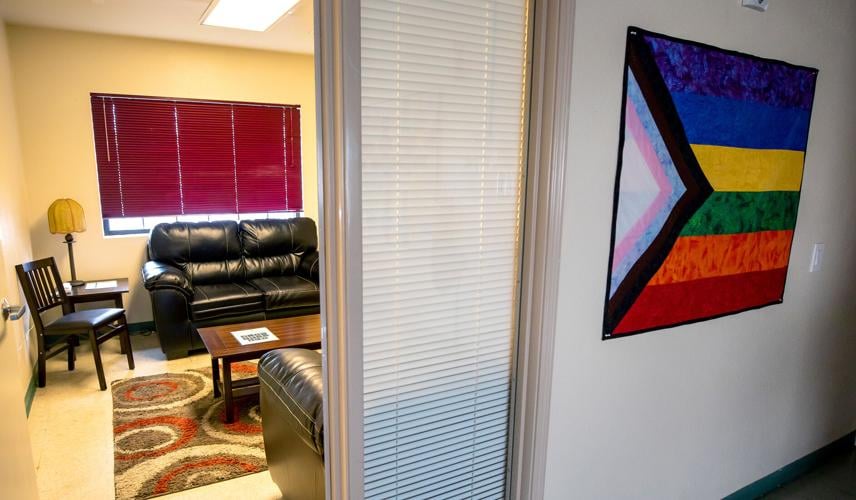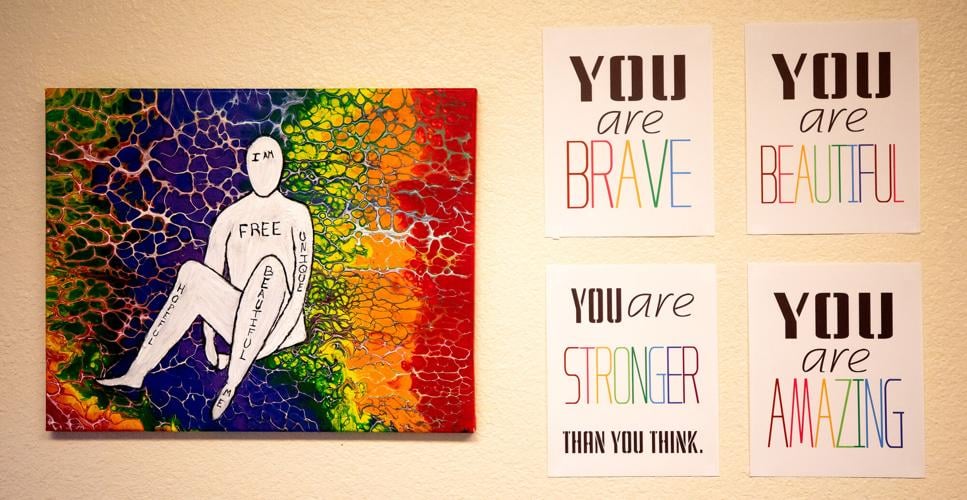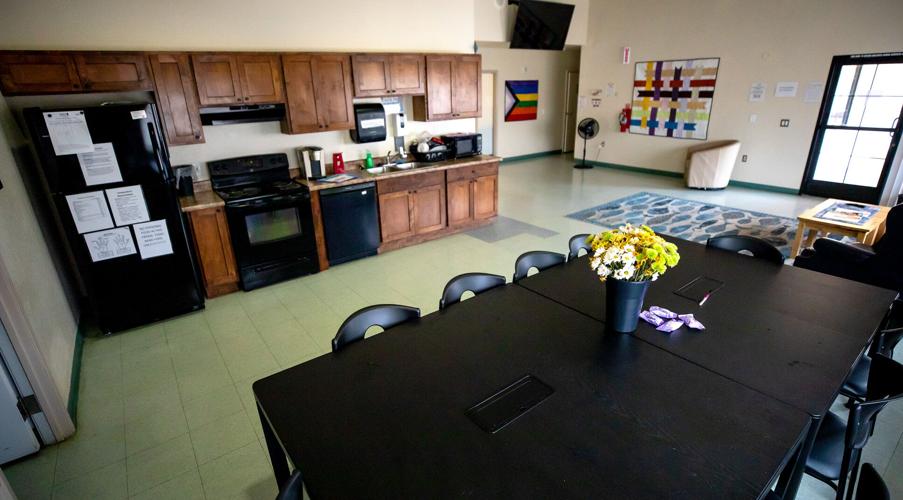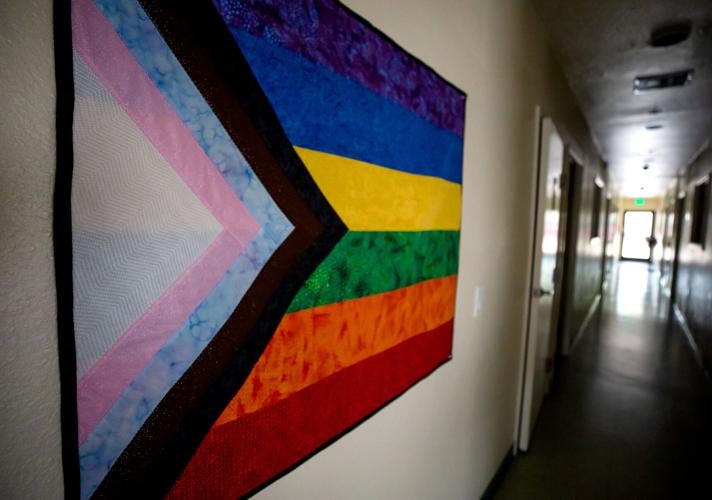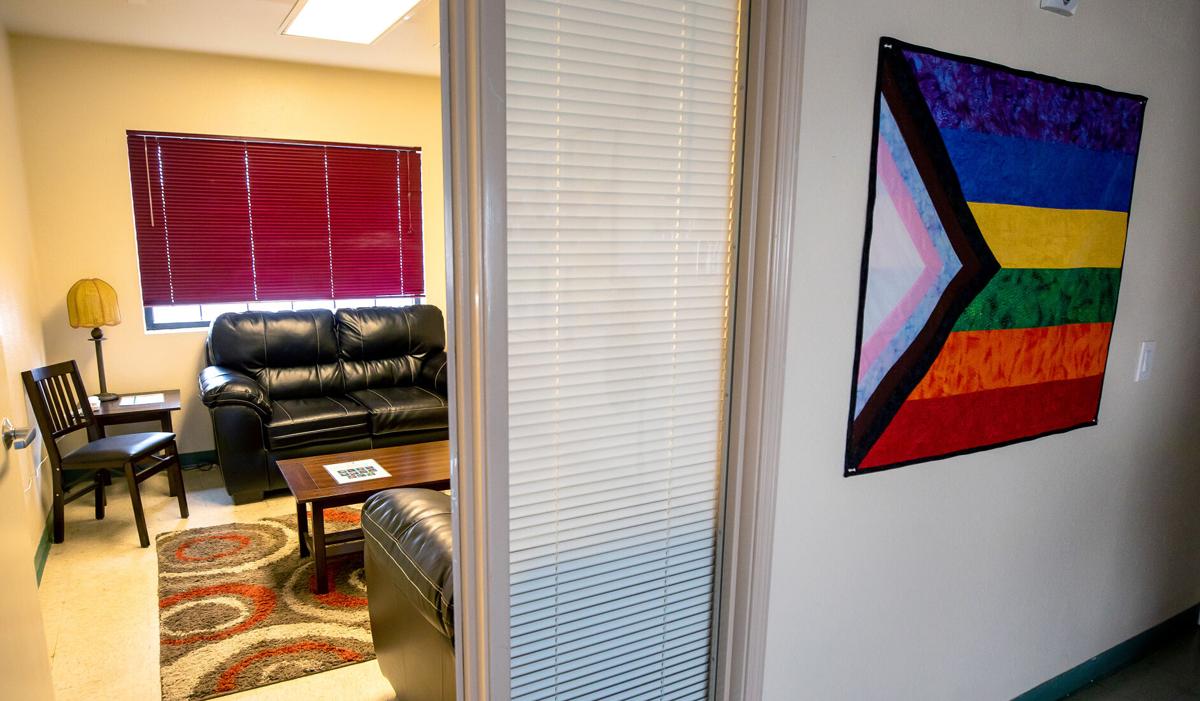A local transitional housing site is helping to address homelessness in Southern Arizona, assisting one of the most marginalized groups of homeless individuals: LGBTQ+ youth.
Bread & Roses is the first crisis transitional housing site in Pima County dedicated to providing homeless LGBTQ+ youth, from the ages of 18 to 24, a safe and welcoming place to stay while providing resources and services to help keep them permanently off the streets.
The site is a collaborative program between the Southern Arizona AIDS Foundation and Old Pueblo Community Services.
“The primary goal with all of our programs is to get people into permanent housing,” said Tom Litwicki, the CEO of OPCS. “If you can’t have a safe place to live, it’s really hard to work on any of the other problems or challenges you may be facing.”
Bread & Roses follows a “housing first” method, which provides safe housing so homeless LGBTQ+ individuals can receive further assistance. Then, the participants in the program will receive access to a case manager, medical care, counseling services and educational and wellness services, such as sex education and food.
To ensure proper medical care for transgender individuals in the program, Bread & Roses has paired up with El Rio Health, which offers transgender primary care services.
The program can also help provide job preparation training and transportation to job interviews so that participants can “be successful, both while they’re in the transitional housing setting and beyond,” said Dr. Ravi Grivois-Shah, the CEO of SAAF.

Motivational signs are placed along the wall in the group room at Bread and Roses Crisis Transitional Housing in Tucson.
Although Bread & Roses offers an abundance of services and resources to participants, Litwicki said that he would like the program to be viewed as a solidarity model and not a charity program.
“We’re here in solidarity with you in your struggle, and we want to be of help. But we’re not a charity, we’re not here to teach you the right thing to do, or, you know, give you things if you behave correctly, like it’s a real, different paradigm,” he said.
Aside from getting participants off the streets and into permanent housing, Litwicki and Grivois-Shah want to create an environment that encourages radical acceptance of people for who they are.
“Who you are, is just perfectly fine with us. And how you show up (to Bread & Roses) is perfectly fine with us. All we want to do is help you achieve your goals,” Litwicki said.
Creating an accepting and welcoming environment is critical for LGBTQ+ individuals who end up displaced or homeless. A main reason LGBTQ+ youth end up homeless is due to being kicked out of their homes because of not being accepted by their families.
According to a 2019 study conducted by LeCroy & Milligan Associates for the Tucson Pima Collaboration to End Homelessness, “youth surveyed who identified as LGBTQ are significantly more likely to be homeless — 67% — because they were kicked out of their family home, compared to 46% of youth surveyed who did not identify as LGBTQ and were homeless for this reason.”

The common room includes a kitchen table, TV and a couch at Bread and Roses Crisis Transitional Housing in Tucson.
Many homeless LGBTQ+ youth decide to stay on the streets rather than seek transitional housing services because they don’t feel safe, said Grivois-Shah. But as the region’s first truly affirming space for those who identify as LGBTQ+, he hopes that Bread & Roses will help some of the most marginalized community members like no other place can.
Bread & Roses initially received an $864,000 grant in 2019 from the U.S. Department of Housing and Urban Development’s Youth Homelessness Demonstration Program to get the program started in Pima County.
Since opening its doors in November 2020, Bread & Roses has been running at half-capacity because of the pandemic. The housing site, which can typically hold nine individuals, could now only host five. But as COVID-19 restrictions begin to lift, Litwicki hopes that the sense of community at Bread & Roses will continue to grow among participants, staff and volunteers.
“I think as we’re able to have more actual interactions, we’ll definitely see more community groups wanting to do dinners, and volunteers are happy to come out and give presentations or go to dinners for support. That just hasn’t really been possible. So I think we’ll see a lot more of that,” Litwicki said.

A rainbow flag on the wall outside the bedrooms at Bread and Roses Crisis Transitional Housing in Tucson.
Both Litwicki and Grivois-Shah hope that Bread & Roses will expand in the future and help many more LGBTQ+ youth in the community get off the streets and into permanent housing so that they can achieve fulfilling and self-sufficient lives.
“Ultimately, we need everyone at the table; we need everyone involved,” Litwicki said. “We can’t afford to isolate people. We can’t afford to just have people, you know, fall through the cracks and not reach their potential in life because of something like, ‘we don’t understand the way this person is.’ It’s not good for the community.”


